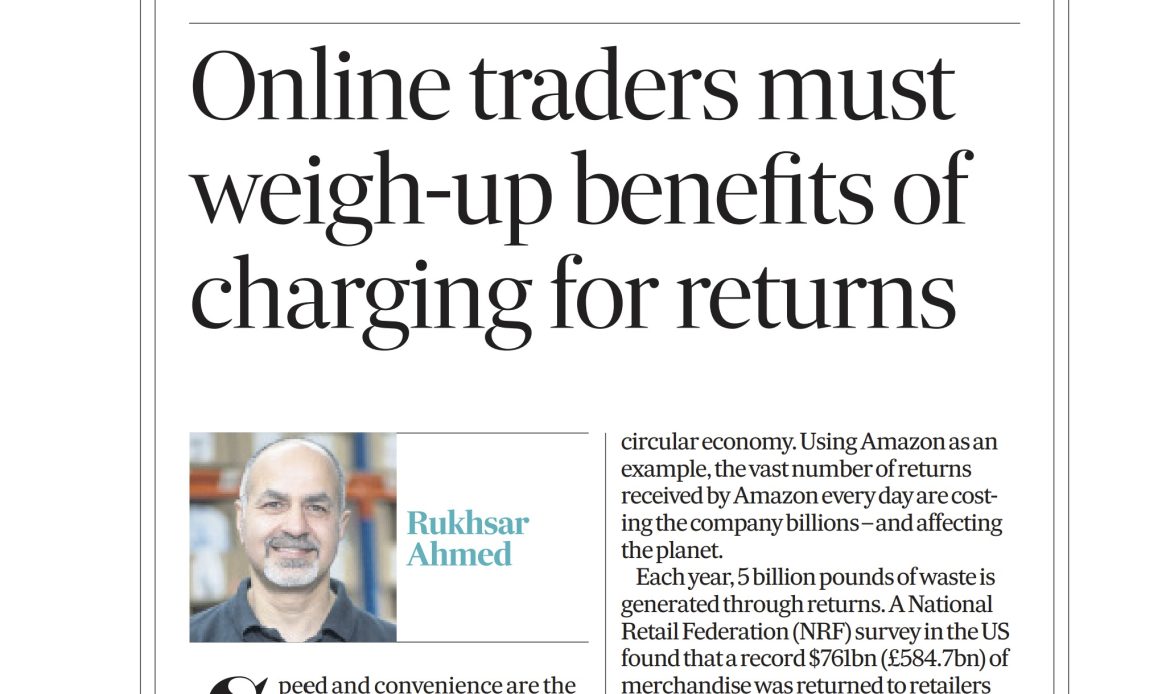
Speed and convenience are the drivers in modern retail and key for clients in our third party logistics operations.
Our one click culture where consumer demand for ever faster, more convenient delivery coupled with high expectations around sustainability, creates an environmental challenge.
Consumers rely on home deliveries on an unprecedented scale. They don’t want to be made to wait. With the growth of apps like Deliveroo and Uber Eats, we’ve seen delivery services completely transform the restaurant, grocery and takeaway sector.
Thanks to Amazon there’s been an unprecedented growth in the requirement for next-day or same-day delivery. Amazon is the world’s largest digital commerce company and on course to become the world’s largest shipping company but what about the environmental cost? In the US, Amazon is responsible for nearly half of all the 165bn packages delivered each year.
Are shoppers prepared to compromise on speed and convenience of deliveries to shop and live more sustainably?
We all have a responsibility to lead a more sustainable existence and one area which requires action is ecommerce returns and of course fast fashion brands get a bad rep – fast sales, fast delivery, fast returns, and fast use.
Reverse logistics is the process of collecting and aggregating products, components, or materials at their end of life for reuse, recycling, and returns and this plays an important role in the process of companies aiming to transition to a circular economy.
Using Amazon as an example, the vast number of returns received by Amazon every day are costing the company billions – and affecting the planet.
Each year, 5 billion pounds of waste is generated through returns. A National Retail Federation (NRF) survey in the US found that a record $761 billion (£584.7 billion) of merchandise was returned to retailers in 2021.
Although Amazon doesn’t share its returns figures, the NRF estimated that 16.6% of all merchandise sold over Christmas was returned – an increase of 56% from the year before.
In many cases returns can’t be resold, so end up in landfill. This is not only bad for the environment, but also has a financial impact on retailers and ultimately, the end consumers.
In 2022, fast-fashion retailer Zara started charging £1.95 per return for items buyers wished to send back by post. Is this something Amazon should introduce?
Brands are well aware of the kudos that ‘green’ credentials carry with modern consumers and are positioning eco-friendly practices front and centre of their business strategies, working with firms like ours to cut their carbon footprint, reduce single-use plastic and ensure they are on a journey to operating more sustainably.
Research from the returns management platform ReBound in 2020 found that 79% of UK shoppers would choose more sustainable delivery options if they were available. A small number expressed they would only be prepared to pay a maximum of £0.50p extra for more eco-friendly delivery, with just under 30% saying they wouldn’t be prepared to pay more at all.
We all have a responsibility to lead a more sustainable existence and there are evolving solutions such as electric vehicles, solar energy, plastic-free packaging and more. Ways to mitigate a huge amount of returns include accurate sizes in fashion, lengthy and detailed descriptions and specifications for products all of which will help reduce returns.
My big question around ethics is, should brands big and small start charging customers for returns?
Rukhsar Ahmed, MD of third party logistics company, Green Fulfilment
